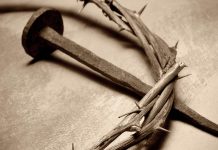Tag: bible
The diamond with 1,000 facets | Aspects you didn’t consider when reading the biblical account...
Born in Africa, at the crossroads of three cultures—Arab, French, and Jewish—Jacques Doukhan was raised in a Jewish family. At the age of 18, he discovered the Christian gospel and became a Seventh-day Adventist, rejoicing that he did not have to renounce his roots in this church. Like Jews, Adventists observe the Sabbath and "share the same life ideals", explains Dr Doukhan.
At a crossroads: the Christian and their choices
“And taking your life as a whole, with all your innumerable choices, you are slowly turning this control thing either into a heavenly creature or into a hellish one,” wrote C.S. Lewis—simply through the decisions you make. If the choices we face truly carry such eternal weight, how can a Christian ensure they are making the right ones?
Paul’s savage class critique in 1 Corinthians
If you’ve ever been to a Christian church, there’s a good chance that you’ll have experienced a unique ritual involving bread and grape juice: the Lord’s Supper, or as we’ll refer to it, Communion. Depending on the denomination, your experience may vary wildly. You may be offered a cup that everyone collectively sips out of, accompanied by a piece of bread. Others will offer a small cup with a cracker.
The imminence and delay of the eschaton
This article addresses the two often conflicting aspects of the parousia: its imminence and its delay.
The Christian citizen
“If it is possible, as far as it depends on you, live at peace with everyone” (Romans 12:18).
Daniel: on the pedestal of history
On the pedestal of history, holding the flame of freedom—that's how the Book of Daniel has stood since it first appeared, more than 2500 years ago, and how it continues to stand today. It is a divinely inspired introduction to the book of Revelation, and together they represent the extension of the gospel beyond the apostolic generation up until the return of Christ, a biblical revelation of the promise of the triumph of the persecuted.
Baby steps to the manger
While Santa Claus, his reindeer, and the various stories that add to the magic of the holidays easily capture children's imaginations, we may find that introducing them to the true story of the birth of Jesus is more difficult—or at least that it's not as easy to present a true story in as attractive a package as the fiction has been wrapped in.
Does God listen to my prayers?
If there is a crossroads where both the path of faith and the path of doubt or unbelief begin, it is prayer.
1,000 years later
Christianity is fundamentally built on the belief that the life and mission of Jesus Christ on earth were a continuation and fulfilment of God’s earlier revelation, known as the Old Testament.
To be or to become? That is the question
“The Christ of Nicea is obviously a far cry from the historical Jesus of Nazareth, an itinerant apocalyptic preacher in the backwaters of rural Galilee, who offended the authorities and was unceremoniously crucified for crimes against the state. Whatever he may have been in real life, Jesus had now become fully God.”
Uncertain certainties and the fragility of reason
“For a long time I supposed that somewhere in the university, there were really clever people whom I had not yet met, and whom I should at once recognise as my intellectual superiors, but during my second year, I discovered that I already knew all the cleverest people in the university. This was a disappointment to me, but at the same time gave me increased self-confidence.” [1]
“Believe and do not inquire”: the motto of a convenient faith
Many who are familiar with leafing through the pages of the Bible might claim that it’s enough to simply read it, without delving into deeper study. On the other hand, there are Christians who actively engage in a thorough examination of the sacred text, though often without a structured approach. Others choose not to read it at all, despite their connection to religious traditions. A widely accepted phrase in popular culture suggests that one must “believe and not inquire.” The implications behind this way of thinking are deeper than one might initially expect.
Is faith a negative thing in life?
The effect or influence that a particular thing has on us depends largely on where that thing falls on the scale of our values. It's one thing to lose your folding fan in a foreign country and quite another to lose your passport.
From heartache to hopeful
It’s not hard to misinterpret the Bible. I’ve done it, most people I know have done it and if you’ve read it enough, I’d bet you’ve done it too. It isn’t surprising then, that throughout history many have misinterpreted the Bible, especially when it comes to complex ideas like the end of the world and Jesus’ second coming.
The meaning of life: between the sandbox and the constellations
Life is a stage that we enter without a script, although we are constantly influenced by forces of varying visibility: social, educational, religious, economic, and political.


























